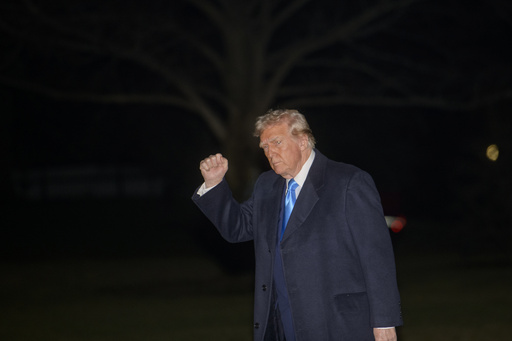
In Johannesburg, just days after President Donald Trump enacted an executive order that halted nearly all U.S. foreign aid, Claris Madhuku received a disheartening email instructing him to stop all activities immediately. This message confirmed his anxiety that Trump’s return to leadership would jeopardize his organization, which focuses on preventing child marriages of young girls in Africa.
While many African observers were aware that Trump’s “America First” policy would likely deprioritize their continent, the abrupt suspension of aid from the world’s largest donor took many by surprise. This aid freeze disrupts essential funding for various projects including health responses, girls’ education initiatives, and nutrition programs for schools. Amid global reactions that led to certain exceptions being made, sub-Saharan Africa stands to experience the most significant setbacks, as the majority of international aid is paused for a 90-day review period. Last year alone, the U.S. contributed over $6.5 billion in humanitarian assistance to this region.
For Madhuku and numerous other community leaders, the impact of this decision is already palpable. His Platform For Youth and Community Development relies on U.S. aid to support about 100 volunteers, who are crucial for outreach programs aimed at keeping girls in school and preventing early marriages. “We had to halt everything, with no warning or time to make adjustments,” Madhuku expressed. “Although I understand Trump is accounting for taxpayer money, it’s disastrous for us here.”
As these concerns grew, many turned their thoughts to one of the most praised foreign aid programs, the President’s Emergency Plan for AIDS Relief (PEPFAR). With bipartisan backing over two decades, PEPFAR is credited with saving upwards of 25 million lives, predominantly in Africa. Following the U.S. aid freeze, South Africa’s health minister, Aaron Motsoaledi, called the situation “baffling,” emphasizing that nearly 20% of South Africa’s $2.3 billion annual HIV/AIDS budget stems from PEPFAR, putting this critical health initiative at risk.
The repercussions of the aid suspension have already affected patients in South Africa, where facilities funded by PEPFAR continued to shut down. A notice at a well-known clinic in Johannesburg acknowledged the inconvenience caused by the closures as patients were turned away. In regions like Soweto, individuals needing HIV treatment faced frustrating barriers as PEPFAR-funded services remained unavailable.
Experts note that the full implications of these interruptions on HIV programs are still uncertain, but the potential for swift and dangerous consequences is evident. Charles Kenny, a senior fellow at the Center for Global Development, warned that while the funding waiver should cover life-saving medications, access to crucial diagnostic tests remains essential. Short breaks in antiretroviral treatment can lead to a rebound effect in HIV viral loads within weeks, elevating risks for those affected.
Even within the aid community, there’s confusion over which programs funded by U.S. resources can continue operations even for a short period. The Trump administration has warned USAID contractors and employees against discussing these issues publicly without top-level authorization, leaving aid organizations anxious about the possibility of permanently losing financial assistance if they voice their concerns.
The humanitarian crisis extends beyond health programs, as officials indicated that more than 1.2 million people in the Democratic Republic of Congo could lose critical support due to the aid freeze. This interruption comes amidst rising conflicts in eastern Congo, where millions of people are already displaced, and health emergencies like the outbreak of the mpox virus have been declared.
In Sudan, grappling with a cholera outbreak alongside malaria and measles threats, approximately 600,000 individuals are now at a heightened risk of illness due to the halted aid. Even though some life-saving services may be exempt, organizations have been instructed not to restart any USAID-funded activities until they receive explicit confirmation that the waiver applies.
The continuous suspension of aid in regions heavily reliant on it presents grave concerns, and the unfolding situation highlights the precarious balance between national interests and the urgent humanitarian needs of vulnerable populations.

